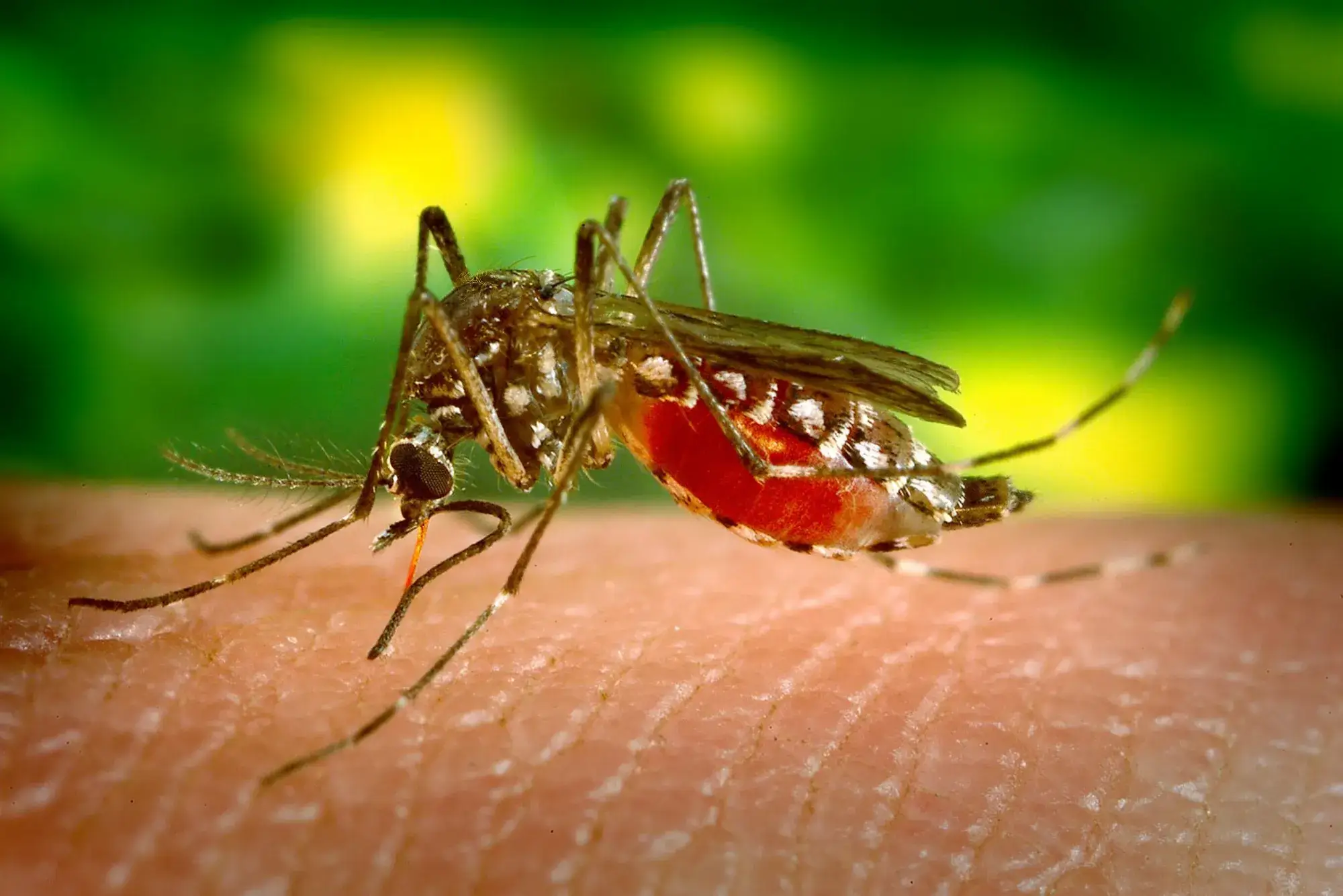Insect-borne illnesses are a significant global health concern. Many common insects, such as mosquitoes, ticks, and flies, are responsible for transmitting a variety of diseases that impact millions of people every year. These diseases include malaria, dengue, Lyme disease, and Zika virus, among others. Preventing the spread of these illnesses has become a priority for both public health officials and individuals alike.
One potential solution that has been widely used is the application of insect killers. This raises the question: Can an insect killer reduce the risk of insect-borne illnesses? In this article, we will explore how insect killers work, the role they play in preventing the transmission of diseases, and how brands like Al Shabah contribute to improving public health through effective insect control.
Understanding Insect-Borne Illnesses
Insect-borne illnesses are diseases transmitted through the bite or sting of infected insects. These insects act as vectors, carrying harmful bacteria, viruses, or parasites that can be transferred to humans. For instance, mosquitoes are the vectors for diseases like malaria and dengue, while ticks spread Lyme disease and other illnesses.
Malaria is a deadly disease transmitted by the Anopheles mosquito. Similarly, Aedes mosquitoes are responsible for spreading the Zika virus and dengue fever. In addition to mosquitoes and ticks, other insects like flies and fleas also pose a risk, transferring bacteria that can cause foodborne illnesses and infections.
With such a variety of diseases caused by insects, effective measures to control their populations are necessary to reduce the risk of infection. This is where insect killers play a significant role.
How Insect Killers Work to Control Insects
Insect killers are designed to reduce or eliminate insect populations in specific environments, such as homes, gardens, and public spaces. These products typically target the nervous systems or metabolic processes of insects, leading to their death. There are various types of insect killers, including chemical insecticides, biological insecticides, and physical control methods.
Chemical insecticides are widely used to eliminate insects by interfering with their biological functions. These insecticides often contain active ingredients such as pyrethroids, organophosphates, or carbamates, which disrupt the insect’s nervous system and lead to their demise.
Biological insecticides, on the other hand, use natural organisms like bacteria, fungi, or viruses to infect and kill pests. These products are considered more environmentally friendly compared to chemical insecticides, as they are typically less harmful to humans, animals, and beneficial insects.
Physical control methods include traps, bug zappers, and barriers that capture or kill insects through electric shocks or mechanical means. These methods are often used in conjunction with other insect control strategies to enhance their effectiveness.
Products from companies like Al Shabah provide a range of insect control solutions, from sprays to traps, all designed to target specific insects and reduce their populations. By using insect killers effectively, individuals can take proactive steps to lower the risk of insect-borne diseases.
The Role of Insect Killers in Reducing Disease Transmission
The key to reducing the risk of insect-borne diseases is controlling the insect population that acts as a vector for these illnesses. Insect killers are designed to target the most common disease-carrying insects, such as mosquitoes and ticks, and reduce their numbers. By decreasing the population of these insects, the chances of disease transmission decrease as well.
Mosquito Control: A Vital Step in Preventing Malaria and Dengue
Mosquitoes are the primary vectors for diseases like malaria and dengue. These insects thrive in humid environments, and they typically breed in stagnant water. By using an insect killer to reduce the mosquito population, individuals can lower the chances of coming into contact with mosquitoes carrying harmful pathogens.
Effective mosquito control is essential in areas where diseases like malaria and dengue are prevalent. Products from Al Shabah are specifically designed to target mosquitoes at all stages of their lifecycle, from eggs to adults. By eliminating mosquitoes before they can transmit diseases, insect killers play a critical role in preventing the spread of these illnesses.
Tick and Flea Control: Reducing the Risk of Lyme Disease
Ticks are another significant vector for insect-borne diseases. Lyme disease, caused by bacteria transmitted through tick bites, is a major concern in many parts of the world. Al Shabah offers insect killers that target ticks and fleas, preventing their spread and reducing the risk of Lyme disease and other diseases caused by these insects.
Ticks are often found in wooded areas, tall grasses, and gardens, making it essential to regularly treat these areas with insecticides to prevent tick infestations. By using insect killers in these environments, individuals can significantly reduce their risk of contracting Lyme disease and other tick-borne illnesses.
Fly Control: Preventing Disease Transmission in Urban Environments

Flies, particularly houseflies, are known to carry a variety of pathogens that can cause foodborne illnesses and infections. While flies are not as dangerous as mosquitoes or ticks in terms of disease transmission, they can still pose a health risk, particularly in areas where hygiene is poor. Flies can transfer bacteria from unsanitary surfaces to food, leading to foodborne illnesses.
By using an insect killer to eliminate flies from the environment, individuals can reduce the risk of contamination and illness. This is especially important in kitchens and dining areas, where food safety is a top priority. Al Shabah products help control fly populations, ensuring a cleaner, safer environment.
Why Choose Al Shabah for Insect Control?
When it comes to insect control, choosing a reliable and effective brand is essential. Al Shabah has built a reputation for providing high-quality insect killers that help control a wide range of pests. Here are a few reasons why Al Shabah products are trusted by consumers:
Proven Effectiveness in Insect Control
Al Shabah products are designed to be effective against a variety of insects, including mosquitoes, ticks, flies, and other pests. These products are formulated using active ingredients that have been proven to eliminate insects quickly and efficiently.
Safe for Use Around Families and Pets
One of the main concerns with insecticides is their safety around children and pets. Al Shabah takes safety seriously, offering insecticides that are safe to use around families and pets when applied according to the instructions. This makes their products a reliable choice for households concerned about safety.
Environmentally Friendly Solutions
In addition to their effectiveness, Al Shabah also focuses on producing insect killers that are environmentally friendly. Many of their products are designed to target specific pests, minimizing harm to beneficial insects and the overall ecosystem. This commitment to sustainability makes Al Shabah a responsible choice for insect control.
Convenient and Easy-to-Use Products
Al Shabah offers a variety of insect control products, including sprays, traps, and aerosols, that are easy to use in various environments. Whether you’re treating your home, garden, or outdoor areas, Al Shabah products are designed to provide effective results with minimal effort.
Best Practices for Using Insect Killers Effectively
Using insect killers effectively requires careful attention to detail. To maximize their benefits, it’s important to follow the recommended guidelines for application and use them in conjunction with other preventive measures.
Read and Follow the Instructions
Always read and follow the instructions on the product label. Proper application ensures that the insecticide is used safely and effectively, providing the best possible results in controlling pests and reducing the risk of disease transmission.
Focus on Breeding Sites
Insects like mosquitoes breed in stagnant water, so eliminating standing water is a key step in preventing mosquito populations from growing. Treat areas where mosquitoes and other insects breed to minimize their numbers.
Combine with Personal Protective Measures
Insect killers work best when combined with other preventive measures, such as wearing protective clothing, using mosquito nets, and avoiding peak insect activity times. Taking these precautions alongside insect control products can significantly reduce your exposure to harmful insects.
Insect Killers and Public Health
Insect-borne diseases are a serious public health threat, but using insect killers like those offered by Al Shabah can significantly reduce the risk of infection. By targeting and eliminating insects that carry dangerous pathogens, insect killers help to protect individuals and communities from diseases like malaria, dengue, Lyme disease, and foodborne illnesses.
However, it’s important to remember that insect control is just one part of a broader strategy to prevent insect-borne illnesses. Combining insecticides with good hygiene practices, the elimination of breeding sites, and personal protection measures will provide the most effective defense against insect-borne diseases. With the right approach, we can greatly reduce the impact of these diseases and protect our health.
FAQs
How effective are insect killers in preventing insect-borne diseases?
Insect killers can significantly reduce the population of disease-carrying insects, which lowers the risk of disease transmission. When used properly and combined with other preventive measures, they are highly effective in reducing the risk of insect-borne diseases.
Are Al Shabah insect killers safe to use around pets and children?
Yes, Al Shabah insect killers are designed to be safe for families and pets when used as directed. Always follow the application instructions to ensure safety.
How often should I use insect killers to protect against insect-borne illnesses?
The frequency of use depends on the level of infestation and the type of insect. For mosquitoes and ticks, regular application during peak seasons is recommended to keep









